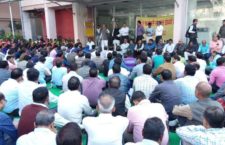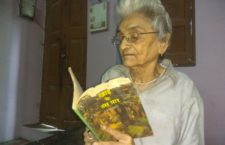“People’s personal lives are out in the open all over social media, to be dissected by others” says lawyer Manju Dwivedi, a resident of Mahoba. With the spread and popularity of social media across the country, rural Bundelkhand is not far behind. There is no doubt in the fact that holding a conversation on social media and facilitating interaction with people, ideas and events is much easier than in real life, and others like Manju Dwivedi strongly agree with this premise.
“People on social media comment nicely and badly on any post that they see. But no one says anything to people or channels face to face. All the people on social media act smart from behind their screens, but none of them has the guts to actually face reality” she adds. In 2017, Amnesty International conducted a poll across 4000 countries including India, around 76% of women who faced harassment on social media, altered the way they used the platform and two-thirds of the women felt a sense of powerlessness.
She believes that social media and the internet become platforms for people to put forward any kind of opinion without having thought it through. The kind of posts online that exist, often trigger unwanted reactions and attention. “People are often humiliated on social media and their vulnerabilities are exposed” she further adds. She is of the opinion that little things are made into massive issues on social media and people are just looking for posts and opinions to be targeted. “There is nothing private and personal that is present on social media, everything is out in the open” she says.
According to Arvind Kushwaha, social media is more than a channel for communication – he says that it facilitates interaction and forms bonds in more than one way. “People are connected with other people through Facebook and WhatsApp. Without social media, it would be difficult for us to connect with people and interact. Social media is not just a medium that facilitates interaction, but also connects people to job opportunities, information on whatever they need to do or find, even education” he says. “Social media can also very well transform into a platform for skirmishes and a place where people react on anything the way they want to, without thinking twice” he further adds.
Another lawyer, Niti Singh Parihar is of the opinion that people can communicate and interact with each other more freely on social media platforms than in real life. “It is easier to talk to people online, than it is to say something offline. People only say ‘hello’ ‘hi’ in real life, face to face, but actually hold proper conversations on social media. Sometimes people say good things on social media and sometimes bad, there is complete freedom to say what you want on the internet” she says.
Pradeep Misra is of the opinion that the world is globally connected with each other, because of the internet and social media or popularity of social media.” You can talk to each other on social media easily, it is a valid platform for work and is good for general communication” he says.”It is very easy to connect with the government through the internet.
You can talk to your leaders or reach out to them through these various channels. Just by sitting in one place, so many things, almost the world is accessible to you, because of social media. Problems can be solved, people step up and send messages, it is quite convenient”, he further adds.
On being asked about the role and validity of social media or popularity of social media in the current political scenario, he said that social media impacts us all. The people in power, might or might not object to their posts. “Sometimes it is the How Social Media Drove and Repressed an Election Boycott in UP’s Chitrakootruling party and sometimes it is the opposition, but there is a fear in the back of our heads that we can be policed for what we post on social media. But yes, because of the political atmosphere, I fear that I might be stabbed or shot sometime” he exclaims.
With an increase in popularity of social media in rural Bundelkhand, the channel embodies a shape-shifting identity, where it becomes both friend and foe.

